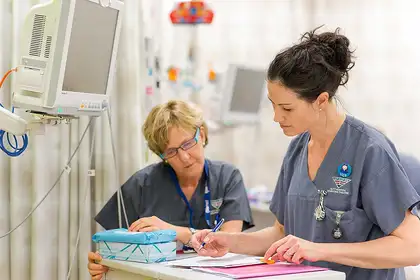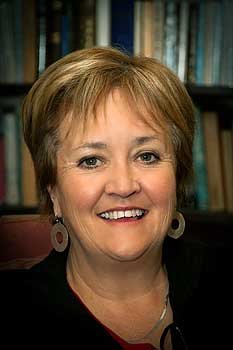

By Professor Jenny Carryer
It is both a challenge and a privilege to be a nurse academic. Challenges and privileges arise from the fact that the university classroom is a safe space for post graduate nursing students wherein they can freely and frankly describe their practice lives. The students are experienced registered nurses almost always fired up with a passion to change the way their services operate and to move their practice closer to community needs. It is an irony that many might assume that a nurse academic is cushioned in the ivory tower but more realistically one is consistently privy to information and feelings that provide a real-world exposure of what it is like to be a nurse in 2019.
Sometimes I find myself overwhelmed by the endless expressions of frustration I hear from nurses. Despite their concerns these nurses are still giving 100 per cent and adding postgraduate study to their busy lives in the hopes of furthering the contribution they can make. Let’s also note here that approximately one third of registered nurses self-fund their postgraduate study despite no absolute certainty that it will lead to higher incomes or employment as a nurse practitioner (NP). I have even met nurses in aged care settings on very low salaries who are self-funding post graduate study!
The ACCORD has recently been signed and supposedly heralds a new era for nursing in which hospital-based staffing is taken seriously and long-standing deficits are addressed. The Ministry, New Zealand Nurses Organisation and District Health Board leadership have come together in good faith to address the challenges raised during recent industrial action. We have long known from substantial international evidence that patient safety is ensured not only through adequate registered nurse staffing but also through a clear structure of clinical leadership with a direct accountability line from Director of Nursing (DoN) to the bedside. This is often referred to as a professional practice model of leadership and its efficacy is enhanced when the DoN is also holding the nursing budget.
I therefore listen with a sense of despair as passionate nurses in senior positions report that they have been quietly informed that it may be quite impossible financially to ensure the hospital is to be staffed properly. In other instances, I listen to the outrage as once again nurses are asked to submit on yet another of the endless restructuring documents which move nurse leadership to advisory positions and strengthen a generic management structure with messy reporting lines. How is it we pursue non-evidence-based approaches to leadership and management structures when we have plenty of evidence that they do not work and never have?
Primary health care nurses especially those in General Practice are clearly doing more and more in that pressure-cooker environment. They are full of ideas about how their potential could be more usefully engaged and they don’t actually talk much about the meagre and disparate salaries they receive. Those on the pathway to becoming NPs are fired with enthusiasm but consistently express uncertainty that they will find employment as an NP. Many have experienced frequent knockbacks as they near completion of the Masters degree and find that no position will be offered in their current practice location despite earlier assurances and clearly much unmet patient need.
General Practice talks about the team and its importance and there are some examples where this is working well. But a team is an entity wherein each member has autonomy over their practice and feels able to openly communicate, challenge and to be respected. I am sad to report that this is simply not what is described by nurses. The power imbalance created by the employment structures, the ownership model and the assumptions of medical leadership mean that nurses do not always feel like respected members of a team focused on creating a service that meets the needs of patients.
In all environments tensions are exacerbated by the constant financial stress. It is easy enough to call for more funding but increasingly clear that this is not a possible answer in a small economy such as New Zealand. Clearly the rhetoric we have heard for 20 years about the need to find new ways of doing things and the need to utilise the workforce differently is right on the point. Unfortunately we have never fully implemented any substantive changes to our workforce deployment or our service models despite endless strategy discussions.
We need to look very closely at the wastage in the system through not having all health professionals working to the full extent of their training, capacity and potential. It’s also time for a good hard look at the most effective use of health-care assistant roles. I am proud to be able to say that nursing at least has heard the call for change and has spent the last 20 years creating the legislative and regulatory situation wherein the capacity of nursing to step up has been vastly increased. Sadly however we are still, in many places, finding it a challenge to be considered professional equals in the health care team. We still struggle to have the vast volume of global research now generated within nursing, used as a basis for determining staffing and structures. I am personally in awe of the courage and perseverance of a great many nurses who continue to do the best they can and who live and practice in hope of real change.
Professor Jenny Carryer is a Professor of Nursing at Massey University, and executive director at College of Nurses Aotearoa. This piece was originally published on the Health Central website.